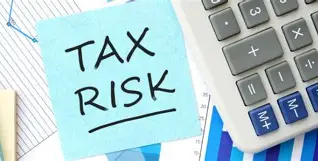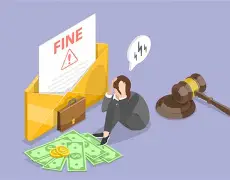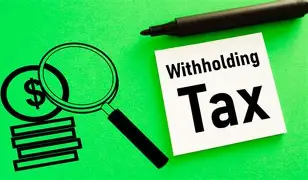For individuals who earn significant incomes through profitable side ventures—ranging from freelance advising to high-end rental properties—reporting supplementary income for tax purposes is not only a required action; it is also a tactic to safeguard wealth. A common misconception is that additional earnings remain unnoticed, yet the dangers associated with not reporting them greatly surpass any immediate benefits. Deliberate reporting can transform supplemental earnings into assets that are favorable for taxes, whereas neglecting to declare them may lead to fines that diminish wealth over time.

Consequences of Not Filing: Fines and Interest
Neglecting to file can result in consequences beyond just paying back taxes. The IRS imposes failure-to-file fines that can reach up to 5% of the unpaid taxes each month, alongside failure-to-pay fines of 0.5% monthly. If a person has $100,000 in unreported secondary income, this could lead to an accumulation of over $10,000 in penalties in a year. Interest is calculated daily on unpaid balances, making what could be a manageable expense balloon into significant debt. Those with high earnings are more susceptible to strict enforcement, making avoidance a risky endeavor.

Deductions: The Unseen Advantage of Reporting
Reporting additional income allows access to valuable deductions which can reduce tax obligations. For those freelancing, permissible deductions include expenses for a home office, premium equipment, or travel related to client appointments. If you lease out property, you can deduct costs related to maintenance, insurance, and depreciation. Expenses tied to hobbies (such as materials for an upscale craft business) can also be deducted up to the total amount of hobby earnings. Frequently, these deductions make reporting income beneficial rather than detrimental.
Tax Withholding: Sidestepping Year-End Surprises
Additional income generally does not have tax withheld, meaning individuals with high earnings need to submit quarterly estimated tax payments. Missing these installments can lead to penalties for underpayment. Utilize the IRS's estimated tax worksheet or consult with a tax professional to determine your obligations—aim for either 90% of your current tax amount or 100% of what you owed last year (110% for incomes exceeding $150,000). This helps avert a significant tax obligation during tax season and keeps you on good terms with the IRS.

Individuals with significant wealth and irregular income levels are at a heightened risk of being audited. The IRS identifies inconsistencies, such as luxury expenditures (like expensive cars or houses) that do not align with reported earnings, or unreported 1099-NEC forms from clients who have paid $600 or more. Third-party applications like PayPal and Venmo also report transactions above $600 to the IRS, eliminating any chance to conceal such earnings. Self-reporting income helps lessen the likelihood of an audit and streamlines the experience if it should arise.
Long-Term Asset: Effects on Credit and Reputation
Failing to pay taxes can harm your credit rating if a tax lien is placed by the IRS. This makes obtaining financing for properties, business projects, or high-end acquisitions more difficult. For business owners, a tax lien could negatively impact their professional reputation and relationships. Reporting side income ensures your financial profile remains clear, maintaining opportunities for wealth accumulation and preserving your professional image.
For individuals who spend at high levels, declaring additional income is essential and cannot be overlooked. It involves more than mere compliance; it also serves to safeguard your assets, unlock deductions, and steer clear of severe fines. By adopting reporting as a tactical measure, you can transform side earnings into a reliable, tax-advantaged component of your financial strategy.

Why you always lose money when buying wealth management products

The Psychology of Risk: Understanding Your Investment Comfort Zone

Insurance: Beyond Risk, Boost Wealth

Digital Yuan: Wallet Revolution Ahead?

The Economics of Fast Fashion: How It Impacts Your Wallet and the Environment

Do you really know when to start investing in funds?

Can you make tens of thousands of dollars a year with a few hundred thousand dollars of capital? Are
